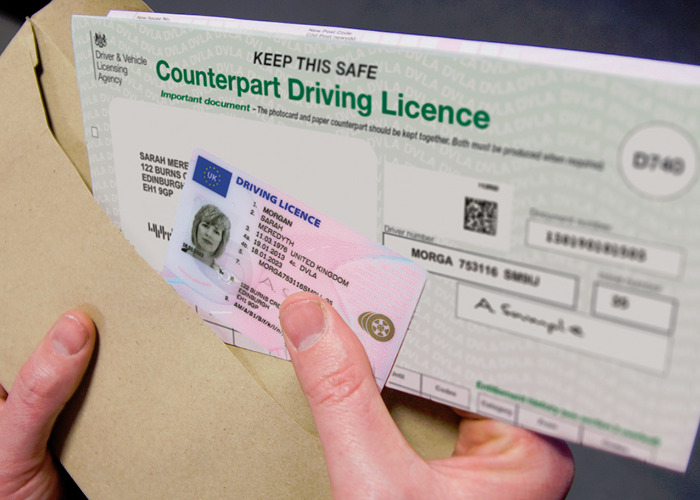Driving licence paper counterpart scrapped: what you need to know

The DVLA is ditching the counterpart to photocard driving licences from 8th June.
The Driving and Vehicle Licensing Agency (DVLA) is abolishing the paper counterpart which accompanies a photocard driving licence.
From 8th June the document will no longer be issued and after this date it will no longer hold any legal status.
The paper counterpart was introduced to display information that couldn't fit on the photocard, like penalty points and the vehicle categories you are entitled to drive.
But now the information is being digitally stored, so there’s no longer a need to issue paper counterparts or update information on the old style paper licences.
Here’s what the change means for you.
Drivers with a paper counterpart
The paper counterparts will lose their legal status from 8th June for existing photocard driving licence holders in England, Scotland and Wales. Drivers in Northern ireland are unaffected.
The DVLA recommends destroying the document after this date but keeping your photocard licence.
Cut the cost of your car insurance
Drivers with a paper driving licence
Around seven million UK drivers have a paper licence.
Paper-only licenses, issued before the photocard was introduced in 1998, will remain valid and should not be destroyed.
However, if you need to update your name, address or renew your licence you will be issued with just a photocard from 8th June.
Viewing your driver record
Neither the photocard driving licence and its counterpart document nor the older paper licence will provide an accurate account of your driving history from 8th June.
Instead, this information will be held on DVLA’s driver record, and can be viewed online or accessed by phone or through the post.
The free View Driving Licence service will let you see what details are on your licence, including what vehicles you can drive and any penalty points you may have as well as disqualifications.
Recording penalty points
From 8th June any new penalty points you pick up will be recorded electronically and won’t be updated on either photocard licences or paper driving licenses.
You will still have to pay the applicable fine and submit your licence to the court. But instead of detailing the incident on a paper counterpart or old-style paper licence, the offence will be held on the DVLA’s digital driver record.
Sharing driving information
If you need to share your driver record, for example when hiring a car, you will have to generate a ‘check code’ from 8th June.
You can do this you by using the Share Driving Licence service online or over the phone. The service can be used by both paper and photocard driving licence holders.
The code lasts for up to 72 hours and will allow a person or an organisation to make any necessary checks.
Alternatively you can download a summary of your driving information or call the DVLA on 0300 790 6801 and leave permission for your driving record to be checked verbally by a nominated company or person.
Cut the cost of your car insurance
More on motoring:
Rural petrol and diesel price cut extended
AXA to display previous insurance premium in renewal letters
Comments
Be the first to comment
Do you want to comment on this article? You need to be signed in for this feature